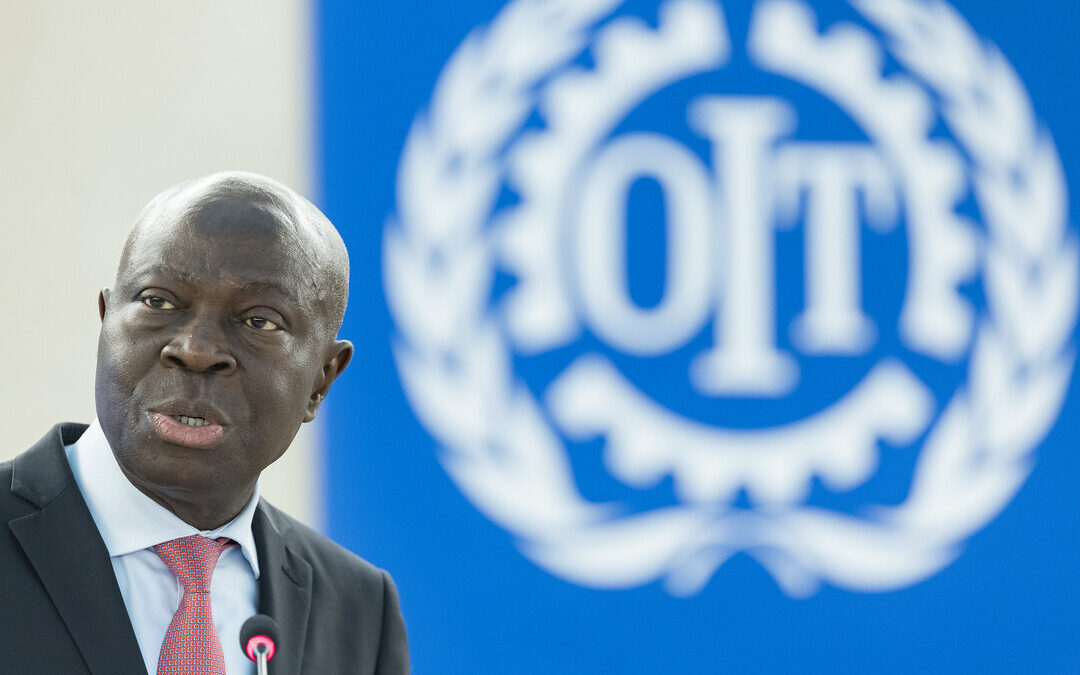ILO Adopts Landmark Convention on Biological Hazards at Workplace
Global labor summit adopts first binding rules on biological hazards and advances protections for digital and maritime workers.
The International Labour Organization adopted the first global labor standard aimed at protecting workers from biological hazards, concluding its 113th annual International Labour Conference with what it described as a “landmark” step toward strengthening occupational safety and health.
The newly adopted Convention 192, commonly referred to as C192, and its accompanying recommendation set out a comprehensive framework for member states to prevent workplace exposure to biological risks, ranging from viruses and bacteria to other infectious agents.
The convention obliges governments to implement national policies to mitigate such hazards and calls on employers to collaborate with workers in adopting protective measures, including the sharing of information and training.
The recommendation provides non-binding guidance on implementation, covering risk assessment, early warning systems, emergency preparedness and response and routes of transmission, such as airborne or contact exposure.
“Taken together, these instruments offer a powerful, adaptable framework to prevent biological risks in every type of workplace, now and into the future,” the ILO said.
Focus on Platform Economy and Informality
The ILC, which ran from June 2 to 13 in Geneva, also launched its first standard-setting discussion on decent work in the platform economy.
Delegates agreed that the future instruments would include a convention and recommendation and established their scope, definitions, and key provisions.
Issues under review include fair remuneration, social protection, occupational safety, the impact of automated systems on working conditions, privacy protections and access to dispute resolution. The second phase of the discussion is scheduled for 2026.
A separate resolution was passed to reduce informality and support transitions to formal employment. It calls on the ILO to develop a global roadmap and assist countries in creating national strategies to extend social protection and decent work to the informal sector.
Amendments to Maritime Labor Convention Approved
The conference approved seven amendments to the Maritime Labour Convention, 2006, aimed at addressing violence and harassment on board, improving seafarers’ access to medical care and repatriation and reaffirming their status as key workers.
The revisions also strengthen rights to shore leave and fair treatment in cases of detention or maritime incidents.
Palestine Gains Observer Status; Myanmar Criticized
The ILC agreed to upgrade Palestine’s status to that of a non-member observer State in ILO meetings, ending its prior designation as a liberation movement.
In a separate move, the conference adopted a resolution urging Myanmar’s military authorities to comply with ILO recommendations on freedom of association and forced labor. It called for stronger international monitoring and support to protect workers’ rights.
During a special session on Belarus, the ILO’s Committee on the Application of Standards expressed deep concern over the use of criminal sanctions against trade unionists.
The committee urged the government to implement the 2003 Commission of Inquiry’s recommendations related to the conventions on freedom of association and collective bargaining.
Global Coalition for Social Justice Forum Held
On June 12, the second annual forum of the Global Coalition for Social Justice convened on the sidelines of the Conference. The event brought together ministers, UN agencies, employer and worker groups, and civil society partners to reaffirm their commitment to practical actions that improve social justice worldwide.
Dominican Republic President Luis Abinader and Brazil’s Labour Minister Luiz Marinho participated in the forum, which emphasized the need for coordinated efforts to reduce inequality and promote decent work.
In his closing address, ILO Director-General Gilbert F. Houngbo said 18 instruments of ratification from eight countries were registered during the session.
“Our mandate and our work matter now more than ever,” Houngbo said. “We have come far, and of course, there is far to go.”
The ILC also adopted the ILO’s Programme and Budget for 2026–27 and formally approved the organization’s contribution to the Second World Summit for Social Development, to be held in Doha in November 2025.
The 113th ILC brought together over 5,400 delegates from governments, employers’ and workers’ organizations representing the ILO’s 187 member states.
Nirmal Menon
Related posts

Subscribe
Error: Contact form not found.


